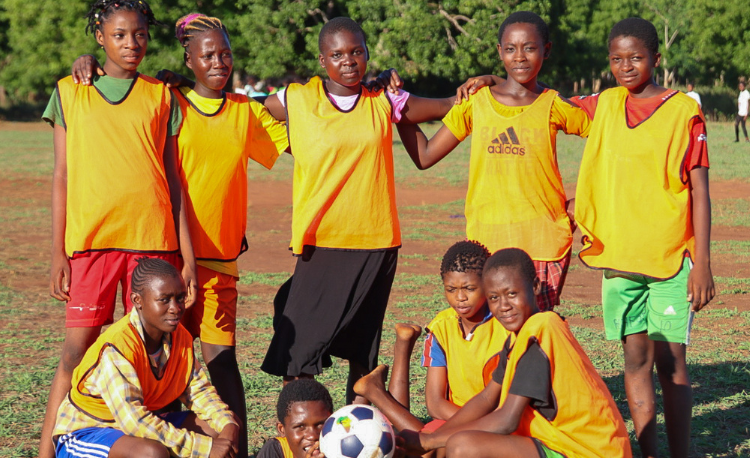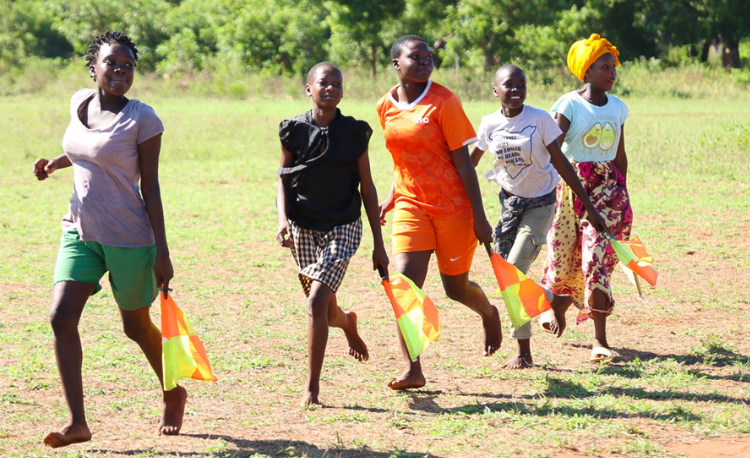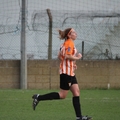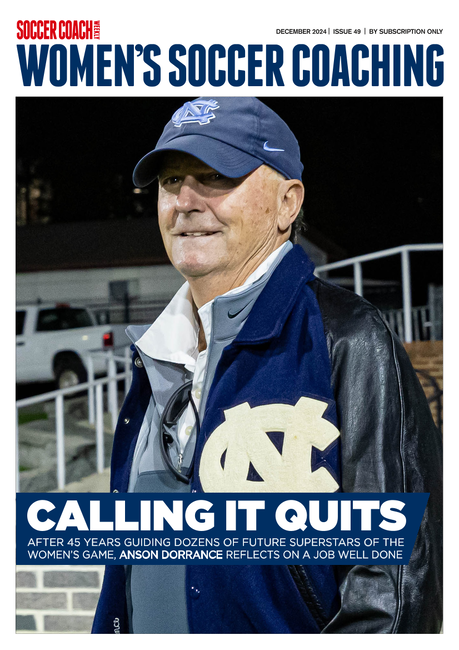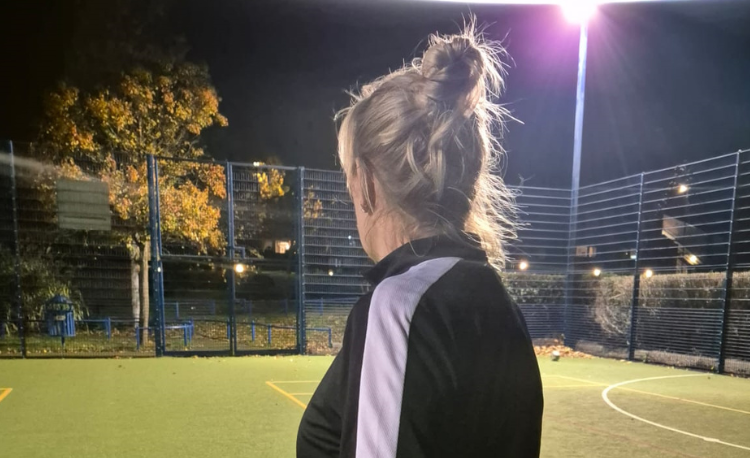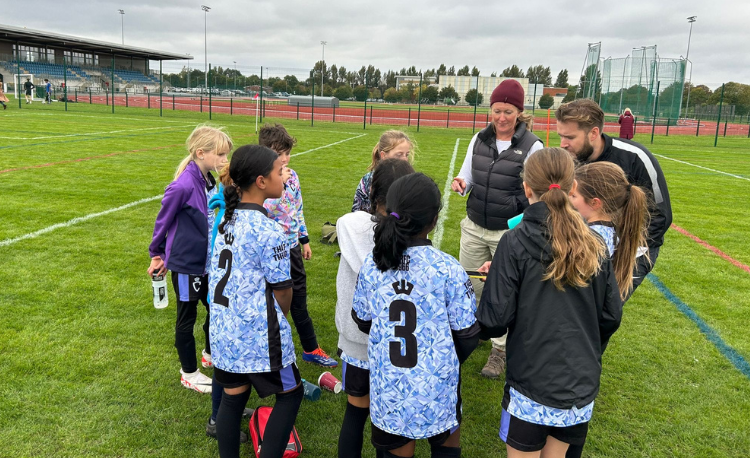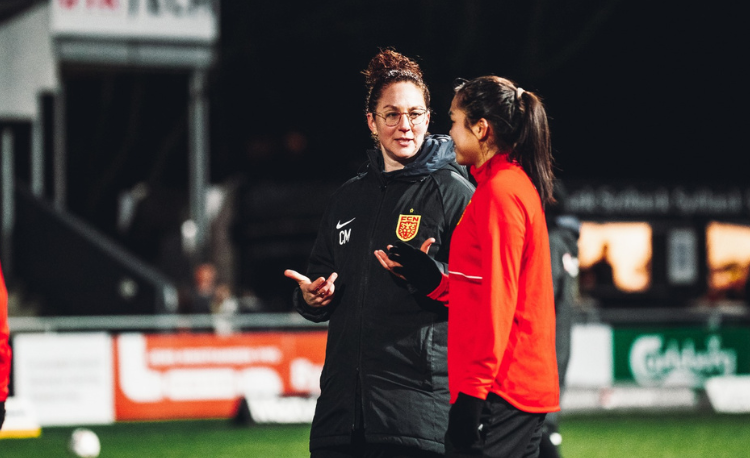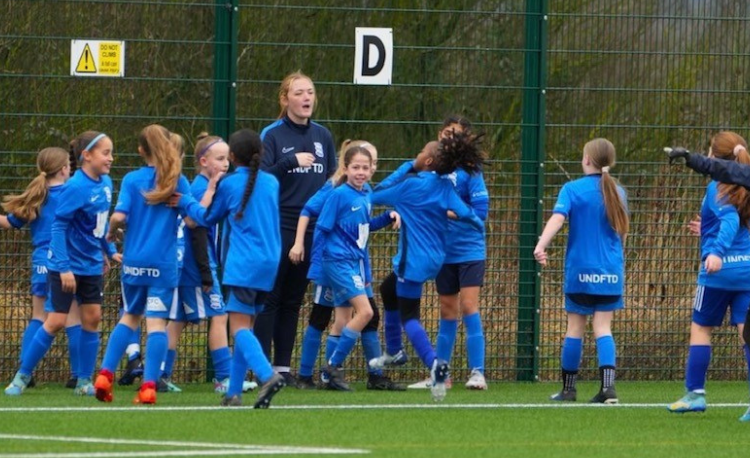You are viewing
1 of your 3 free articles
Moving the Goalposts: a new project to combat inequality in Kenya
Thousands of girls and young women in Kenya have taken leadership and sexual health lessons from a project with soccer at its heart.
In some communities in rural Kenya, more than half of adolescent girls are not in education, employment or training.
Opportunities are limited, with girls expected to marry at an early age – leading to young pregnancies, domestic violence, poor sexual reproductive health, and poverty.
Moving the Goalposts was established in 2002, to help combat gender inequality in these communities, providing girls and women with the tools, education and leadership skills – through soccer – to have better futures.
Hannah Duncan spoke with Moving the Goalposts’ communications officer, Gayleen Akinyi, to find out more...
WSC: Tell us a bit about Moving the Goalposts...
GA: Moving the Goalposts (MTG) is a women’s rights, sport-for-development organization, founded in 2002 in Kilifi, in the rural Coast Province of Kenya.
MTG engages girls in soccer and uses it as a tool to help disadvantaged girls and young women become leaders and create better futures for themselves.
The girls receive training and leadership opportunities to organize and run soccer activities, peer education programs on sexual and reproductive health, women’s rights and economic empowerment.
MTG provides pathways and resources for girls to continue in education and vocational training, plus support to find income-generating employment, including opportunities within the organization.
WSC: Who is it aimed at and how have you gone about reaching these people?
GA: Since 2002, MTG has worked with adolescent girls and young women, from ages 9 to 25, from rural and informal settlements in the coastal region of Kenya.
The program targets disenfranchised girls from four counties that are ranked among the poorest: Kilifi, Kwale, Tana River and informal settlements of Mombasa.
MTG organizes forums in the community and, jointly with the community, identifies safe spaces which act as league fields, where girls come together to play and learn every Saturday.
WSC: What does the program involve?
GA: MTG uses soccer as its tool to work on gender equality issues.
It was intentionally chosen to convey the message that girls and women can take up a sport, and roles, that are otherwise considered appropriate for boys and men, normalising it and reducing stigma and discrimination.
MTG runs a school-fee awards scheme for girls attending the program, proven to incentivise parents to allow girls to attend school and play football.
When girls stay in school, it is proven to reduce instances of violence and harmful practices, including unwanted and early pregnancies and marriage.
Furthermore, soccer training is combined with sexual and reproductive health and life skills education, which educates girls and women on their rights, bodies and community services.
MTG embeds leadership into all aspects of its work, proven to elevate participants’ prospects and change community mindsets on gender roles.
MTG runs programs on open grounds, school and community fields in 52 villages in the coastal region, and conducts twice-yearly, week-long residential leadership camps for leaders, who are assigned to each program venue to oversee the day-to-day running and support of program delivery.
Every girl enrolled participates in a minimum of one weekly practice, a league match, and sexual and reproductive health education session in their respective age group.
This is the same for girls who have disabilities, who participate in adapted programs.
Additionally, MTG runs a special program for young women, which includes entrepreneurship skills and saving groups.
WSC: How many girls and women have been involved so far?
GA: MTG has reached more than 50,000 girls and young women through its programs.
Around 6,000 are reached directly per year, all participating in soccer activities, matches and leagues, sexual and reproductive health and rights education and economic empowerment.
A further 4,000 are reached indirectly per year through wider community outreach services.
WSC: What benefits has this given them and what has the feedback been like?
GA: As we work towards ending all forms of discrimination, MTG has established 52 secure, safe spaces where girls and young women can play sport and practise leadership to thrive and change community attitudes about women in sport.
MTG ensures that all girls attend school, return to education after delivering a baby, or take up entrepreneurial activities to sustain themselves and their families.
In 2023, 85% transited to secondary school, where 183 girls were connected to scholarship, with 85 receiving a direct scholarship from MTG and 42 referred to other organisations for external scholarship support.
Additionally, 27 of the total of 88 girls and young women who sat the Kenya Certificate of Secondary Education (KCSE) embraced opportunities in college and vocational training centres.
MTG programs have facilitated the presence of girls and women in new spheres previously unavailable to them, such as officiating soccer matches, and taking on leadership and responsibilities in the community.
MTG’s 2023 annual survey results also showed that:
- 65% (of all respondents) reported a positive impact on their health, attributing it to awareness campaigns and improved access to healthcare resources and services facilitated by MTG.
- 51.7% reported they had gained the confidence to decide at which age to get married, and to whom.
- 29.7% reported they are now aware of sexually transmitted infections.
WSC: Why is it so important to have this program available within the communities you serve?
GA: In the target counties, more than 50% of adolescent girls are not in education, employment or training and live in absolute poverty.
For these girls, early marriage is perceived to ensure financial security, as girls lack the formal qualifications to enter education or employment.
Once married, these girls are at increased risk of contracting HIV or sexually-transmitted infections, or early pregnancy, due to a lack of sexual reproductive health education and their inability to negotiate contraception use.
As girls become pregnant, financial dependence on husbands increases, resulting in girls fearing destitution and silently enduring gender-based violence and other harmful practices, such as widow inheritance and domestic violence, which are prevalent in the region.
MTG works to dismantle these systemic issues that stem from, and perpetuate, gender inequality, while also providing girls and women with education, sexual and reproductive health information and services, and leadership opportunities for their full and active participation and decision-making in society.
WSC: What are the future plans for the programme?
GA: By 2030, MTG intends to increase the number of girls playing soccer to 100,000 – with 1,000 girls in leadership positions.
MTG has launched the Green Dreams Solar Project, as part of its efforts to reduce carbon emissions. This is among our inaugural efforts to educate our girls and communities on climate change.
MTG is also focused on developing a state-of-the-art sports facility, the Field of Dreams Sports Academy. This will inspire the dreams of adolescent girls and young women in rural communities in coastal Kenya.
The academy will create a world of difference annually for 200,000 adolescent girls and young women, and members of neighboring rural communities, who will gain free access to modern sporting facilities, equipment and training programs that will be specially designed by, and for, women and girls.
case study
Related Files
"Since I joined MTG in 2020, I have gained knowledge, skills and explored my talents through activities, seminars, training and workshops. It has built my thoughts and sense of belonging.
"I grew up in Tana River where, culturally, the girl is not given equal opportunities with the boy. Girls are left at home to do the chores and eventually get married.
"I’m so proud and I stand to be counted to say that MTG has positively impacted my life across all diversities!"
Rynax Fibe Amuma, 16
Newsletter Sign Up
Newsletter Sign Up
Discover the simple way to become a more effective, more successful soccer coach
In a recent survey 89% of subscribers said Women's Soccer Coaching makes them more confident, 91% said Women's Soccer Coaching makes them a more effective coach and 93% said Women's Soccer Coaching makes them more inspired.
*includes 3 coaching manuals
Get Inspired
All the latest techniques and approaches
Women's Soccer Coaching offers proven and easy to use soccer drills, coaching sessions, practice plans, small-sided games, warm-ups, training tips and advice.
We've been at the cutting edge of soccer coaching since we launched Soccer Coach Weekly in 2007, creating resources for the grassroots youth coach, following best practice from around the world and insights from the professional game.
